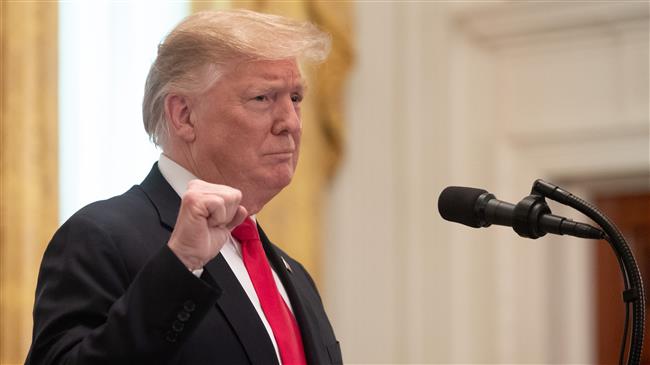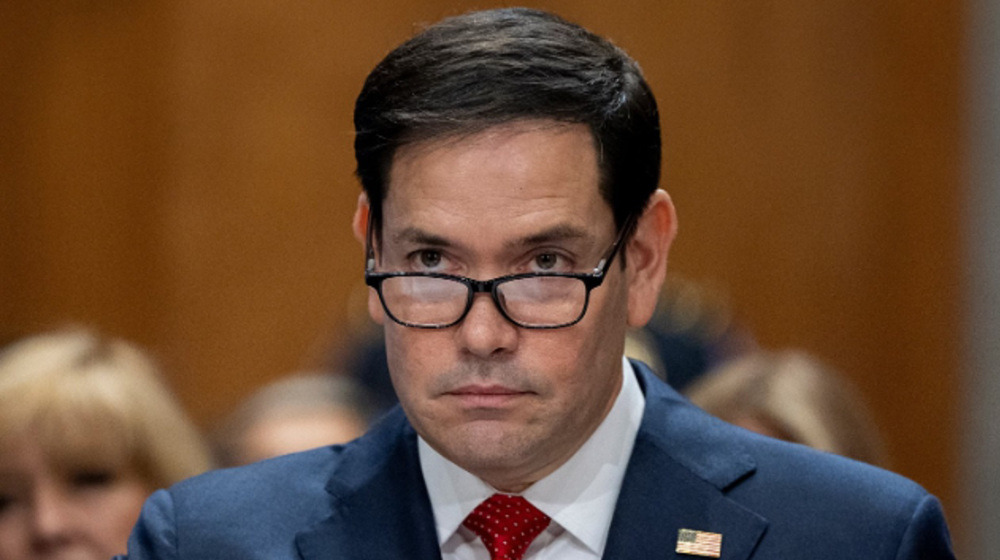Democrats push for ending Electoral College to prevent Trump triumph in 2020
Senator Elizabeth Warren, one of the many Democrats running for 2020 US presidential election, has joined a partisan push to scrap the Electoral College, the constitutional entity tasked with electing US presidents, in order to prevent President Donald Trump from repeating his controversial 2016 victory.
The current election system in the US overrides the popular vote, which gives the victory to the candidate winning the most ballots, in favor of a so-called winner-take-all mechanism.
This means the Electoral College with its 538 electors across different states, who are chosen based on each state’s representation in Congress, is liable for electing the chief executive.
Despite losing the popular vote to his Democratic rival, Hillary Clinton, by a significant margin, Trump still won the 2016 White House race in a 304-227 electoral vote landslide. The threshold for winning presidency is 270 electoral votes.
Speaking in a televised CNN town hall in Jackson, Mississippi, Warren said Monday that it was impossible to have a “national vote” in America with the Electoral College in place.
"Well, my view is that every vote matters. And the way we can make that happen is that we can have national voting. And that means get rid of the electoral college and everybody counts," Warren said to enthusiastic applause.

The 69-year-old Massachusetts lawmaker called for amendment to the US Constitution that guaranteed the right to vote for all citizens, including convicted felons, and said it was equally important to scrap laws that made casting ballots more difficult.
This puts Warren next to Clinton, New York Representative Alexandria Ocasio-Cortez and many other Democrats who have called for ending the Electoral College.
Last October, when she was running to represent New York's 14th Congressional District, Ocasio-Cortez famously called the Electoral College a vestige of slavery.
“It is well past time we eliminate the Electoral College, a shadow of slavery's power on America today that undermines our nation as a democratic republic,” she wrote on Twitter.
Hillary Clinton made a similar call in an article published by The Atlantic last month, saying that the “legitimacy” of the US election system was in doubt.
“And you won’t be surprised to hear that I passionately believe it’s time to abolish the Electoral College,” she wrote.
Ongoing efforts
Representative Steve Cohen of Tennessee has introduced a constitutional amendment to eliminate the electoral college but it has yet to be brought up for a vote in the House of Representatives, which is controlled by Democrats.
At the same time, at least 12 states plus the District of Columbia – with a total of 181 electoral votes— have signed onto the National Popular Vote Interstate Compact, an agreement that requires the signatory states to select their presidential electors based on who wins the popular vote nationwide regardless of the overall state outcome.
The compact would only take effect when enough states have signed to push the total electoral votes to 270, an objective that experts say is impossible to fulfill before the 2020 election.
Republicans in favor of keeping Electoral College
Unlike Democrats, most Republicans are against changing the current election system in US, a trend that rose sharply after Trump’s victory.
A Gallup poll conducted weeks after the 2016 Election Day showed that only 19 percent of Republicans and Republican-leaning independents supported changing the system, down from 54 percent in 2011.
Democrats were a mirror image as 81 percent of participants in the survey said they supported an amendment to switch to a national popular vote, up from 69 percent five years earlier.
Republican state Senator Paul Lundeen, who voted against the compact in Colorado, said removing the Electoral College would hurt smaller and more rural states while giving more power to urban areas, where Democrats have a stronger base.
He also said the move undermines the principle of federalism by ceding power to larger states like California and New York, something he said was short-sighted and only fueled by Democrats’ opposition to Trump.
“If there’s a partisan element it’s the knee-jerk reaction: ‘I hate this current president and he didn’t win the popular vote,’” he said. “And I think that hurts us in the long run.”
CENTCOM confirms US troops killed in Iran’s retaliatory strikes
China ‘strongly condemns’ US-Israeli assassination of Iran’s Leader
Iran sees no limits in defending itself after Leader's ‘dangerous’ assassination: FM
IRGC strikes USS Abraham Lincoln aircraft carrier with volley of ballistic missiles
Iranian armed forces to pulverize US bases across the region: Pezeshkian
Enemy will take dream of enslaving the Iranian nation to grave: Army chief
IRGC launches largest barrage of missile strikes at Israeli occupied territories
Assassination of Ayatollah Khamenei ‘open war against Muslims’: Pezeshkian












 This makes it easy to access the Press TV website
This makes it easy to access the Press TV website